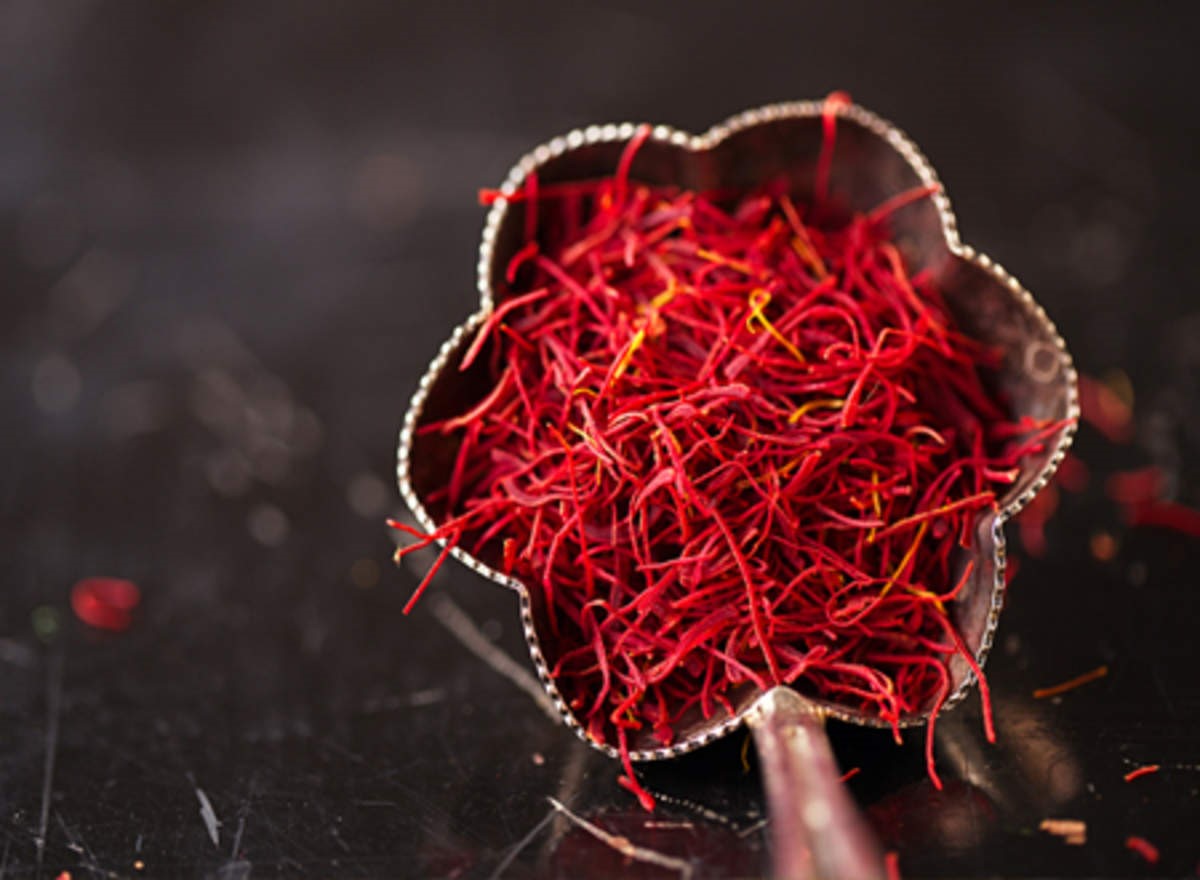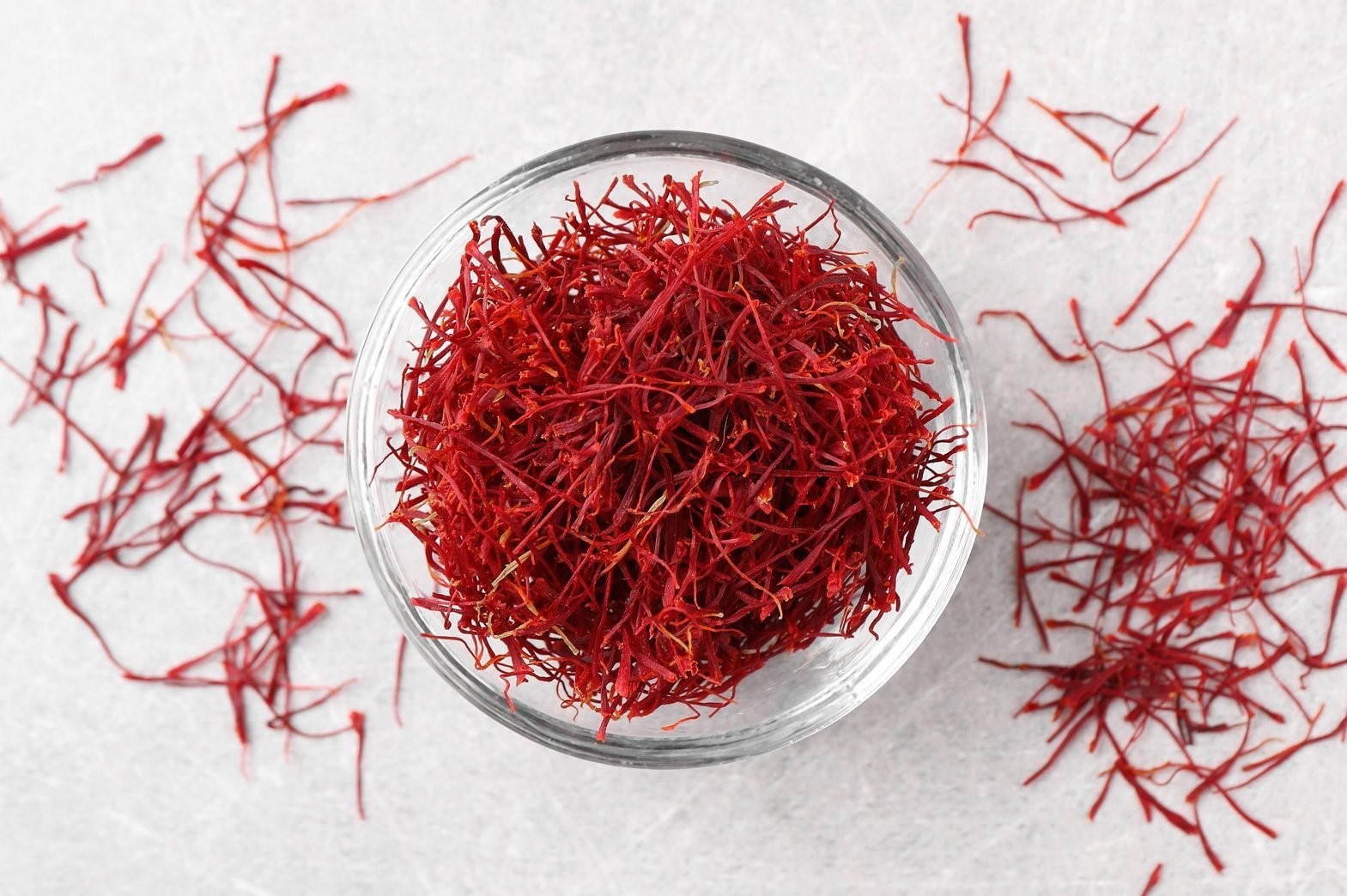A Natural Solution for Focus and Calm
Attention Deficit Hyperactivity Disorder (ADHD) is a common condition affecting millions of individuals worldwide, characterized by symptoms like inattention, impulsivity, and hyperactivity. While traditional treatments such as medication are often used to manage ADHD, many people are seeking natural alternatives. One such option gaining attention is saffron, a powerful spice known for its rich flavor, vibrant color, and medicinal properties. Recent studies suggest that saffron may offer potential benefits in managing ADHD symptoms. In this article, we’ll explore how saffron can help with ADHD and the science behind its effectiveness.

The Science Behind Saffron’s Potential Benefits for ADHD
Saffron, derived from the flower of Crocus sativus, has been used for centuries in traditional medicine for its various health benefits. Known for its antioxidant, anti-inflammatory, and mood-enhancing properties, saffron is now being researched for its role in managing mental health conditions, including ADHD.
Saffron’s Impact on Brain Function and Neurotransmitters
Saffron contains active compounds such as crocin, safranal, and picrocrocin, which are known for their neuroprotective effects. These compounds are believed to help modulate brain function by influencing neurotransmitters such as serotonin, dopamine, and norepinephrine, which play a key role in mood regulation, focus, and attention.
In individuals with ADHD, the imbalance of these neurotransmitters can lead to difficulties in concentration, impulse control, and behavior regulation. Saffron’s ability to enhance the activity of these chemicals may help improve cognitive function, reduce hyperactivity, and increase focus, making it a promising natural treatment for ADHD.
How Saffron Can Improve ADHD Symptoms
Saffron has been the subject of several studies examining its potential benefits for individuals with ADHD. Here’s how it may help:
Boosting Focus and Concentration
Research has shown that saffron may have a calming effect on the brain, reducing hyperactivity and promoting better focus. A study published in the Journal of Attention Disorders demonstrated that saffron extract improved ADHD symptoms, including inattention and hyperactivity, in children. Participants who took saffron showed improvements in both behavior and cognitive performance, suggesting that saffron may enhance attention span and the ability to concentrate in those with ADHD.
Reducing Hyperactivity and Impulsivity
Hyperactivity and impulsivity are hallmark symptoms of ADHD. Saffron’s neuroprotective compounds may help to regulate brain activity and reduce these symptoms. By calming overactive brain regions, saffron could help manage impulsive behaviors and restlessness, leading to a more balanced state of mind for individuals with ADHD.
Supporting Mood and Emotional Well-being
In addition to its effects on focus and behavior, saffron may also support emotional well-being. Many individuals with ADHD experience mood swings, anxiety, or depression. Saffron has been found to possess antidepressant-like properties by increasing serotonin levels in the brain. This can help improve mood stability and reduce anxiety, which are often co-occurring conditions in those with ADHD.
How to Use Saffron for ADHD Relief
If you are considering saffron as a natural remedy for ADHD, it’s important to know how to use it safely and effectively. Here are some tips:
Saffron Supplements
Saffron supplements, available in capsule or tablet form, offer a convenient way to get a concentrated dose of the active compounds found in saffron. Most clinical studies on saffron and ADHD use doses ranging from 15 to 30 mg per day. Be sure to consult with a healthcare provider before starting any new supplement regimen, especially if you are currently taking medication for ADHD.
Saffron Tea
Another way to enjoy the benefits of saffron is by making saffron tea. Simply steep a few strands of saffron in hot water for several minutes. Drinking saffron tea regularly may help support focus and emotional well-being, while also providing a calming effect. How Saffron Can Help with ADHD
https://saffronexporter.com/does-saffron-help-with-weight-loss/569/
Saffron in Cooking
You can also incorporate saffron into your diet by adding it to various dishes. Saffron pairs well with rice, soups, stews, and desserts. While this method may not provide the same concentrated dosage as supplements, it can still offer some benefits when included as part of a balanced diet.
Is Saffron a Safe Alternative for Managing ADHD?
Saffron is generally considered safe when consumed in moderate amounts. However, it’s important to note that high doses of saffron may cause side effects such as nausea, dizziness, or allergic reactions. To ensure its safety and efficacy, it’s best to consult with a healthcare professional, especially if you are pregnant, breastfeeding, or taking medications for ADHD.






